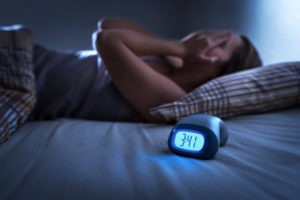Sleep disorders disrupt daily life in ways that can be underestimated. If you’re struggling to achieve restful sleep, alternative treatments from sleep specialists present practical ways to improve sleep quality without heavily relying on medication. These approaches target the root causes of sleep issues while promoting overall well-being. Here are some alternative treatments that may help you regain control over your sleep routine:
Cognitive Behavioral Therapy
Cognitive Behavioral Therapy for Insomnia (CBT-I) is typically recommended as a practical, non-pharmacological approach for treating sleep disorders. This therapy focuses on identifying and altering negative thoughts and patterns. These thoughts can hinder your ability to fall or stay asleep.
A trained therapist typically guides CBT-I sessions, although online programs are also available. Techniques such as stimulus control and sleep restriction are generally incorporated to help retrain your brain’s association with sleep. By replacing dysfunctional thoughts with healthier beliefs, this therapy can gradually lead to lasting improvements in sleep quality.
Various Oral Appliances
When addressing specific issues with sleep specialists, such as obstructive sleep apnea, oral appliances can offer relief. These devices are customized to fit inside your mouth and work by keeping your airway open during sleep. For many individuals, oral appliances are less invasive and more comfortable compared to CPAP machines. They are simple to use and can be fitted by dental professionals. The compact design of these devices is particularly beneficial for those who travel frequently or struggle with bulkier equipment.
Guided Lifestyle Modifications
Small adjustments to your daily habits may have a significant impact on sleep. Simple changes, such as sticking to a consistent sleep schedule, can help your body align with its natural rhythm. Avoiding caffeine and heavy meals in the hours leading up to bedtime helps support your body’s ability to wind down.
Engaging in regular exercise during the day may also help regulate how your body prepares for rest in the evenings, such as a brisk walk in the morning. Creating an ideal sleeping environment by minimizing noise, blocking excess light, and maintaining a comfortable room temperature encourages better sleep. These modifications require commitment but may lead to significant improvements over time.
Meditation and Mindfulness
Meditation and mindfulness practices are another option. Their stress-reducing benefits can translate into improved quality of sleep. These practices work by calming both the mind and body, helping to break the cycle of racing thoughts that typically interfere with falling asleep. Mindfulness is designed to train your brain to focus on the present moment, to ease tension.
Combining Multiple Approaches
When addressing sleep disorders, combining treatments may result in more effective outcomes. For instance, incorporating mindfulness techniques alongside lifestyle adjustments brings added benefits. Similarly, someone managing insomnia may find that CBT-I complements other methods, such as using white noise machines.
Contact Sleep Specialists for Alternative Treatments
Sleep is one foundational aspect of a healthy life. Alternative treatments for sleep disorders empower you to take meaningful steps toward revitalizing your rest. Whether you explore cognitive behavioral therapy, try oral appliances, implement lifestyle changes, or practice mindfulness, each method provides an opportunity to work toward better sleep without heavy reliance on medication. Schedule an appointment with a sleep specialist to learn more.
- mylovelyfurryfriend discover expert tips on dog health
- Infectious Diseases Updates – Stay Informed, Stay Protected!
- Wegovy For Weight Loss – A Breakthrough in Managing Obesity!
- Emergency Medicine Forum – A Hub for Fast-Paced Knowledge, Support & Updates!
- Pediatrics Discussions – Insights, Challenges, and Expert Advice for Better Child Health!





Leave a Reply